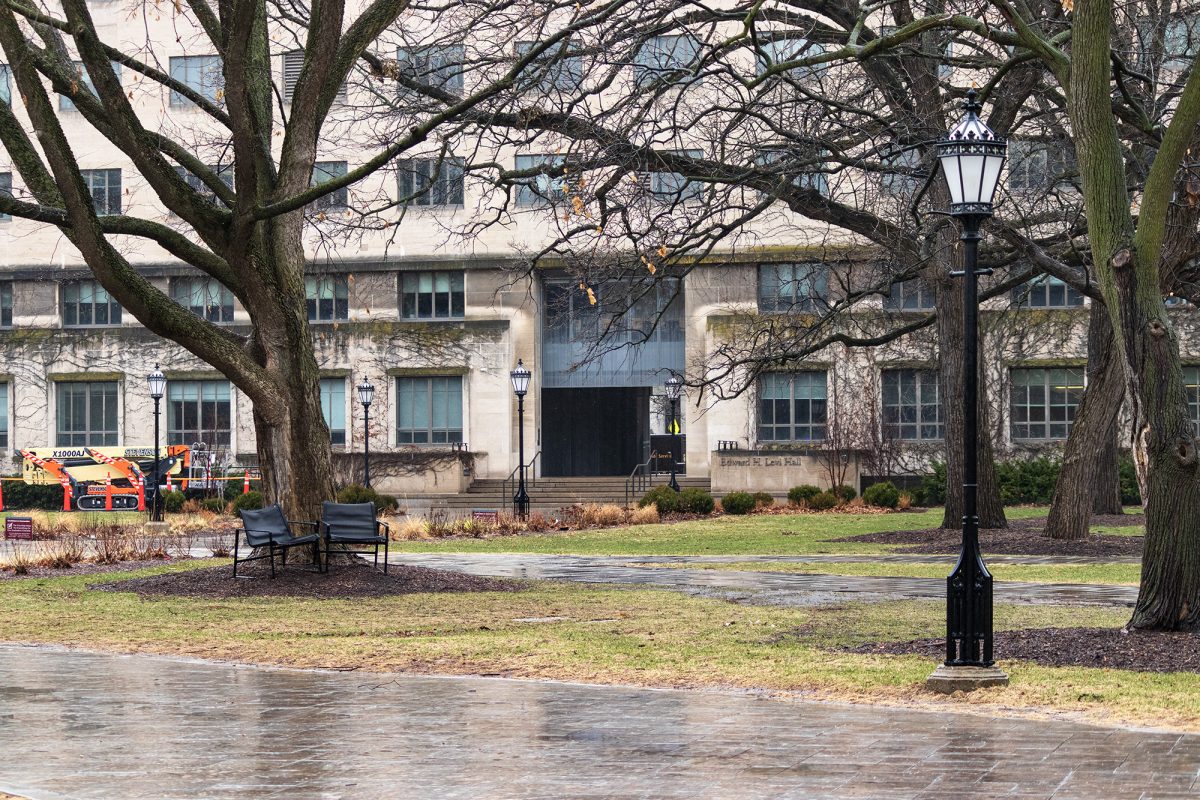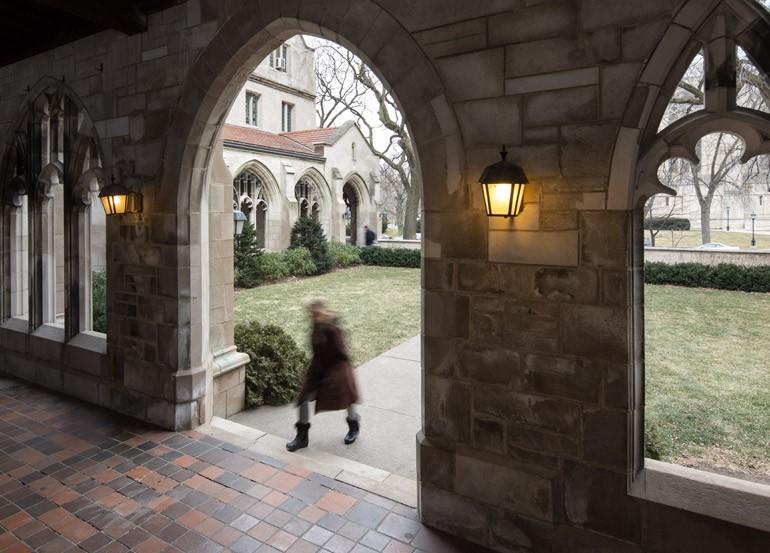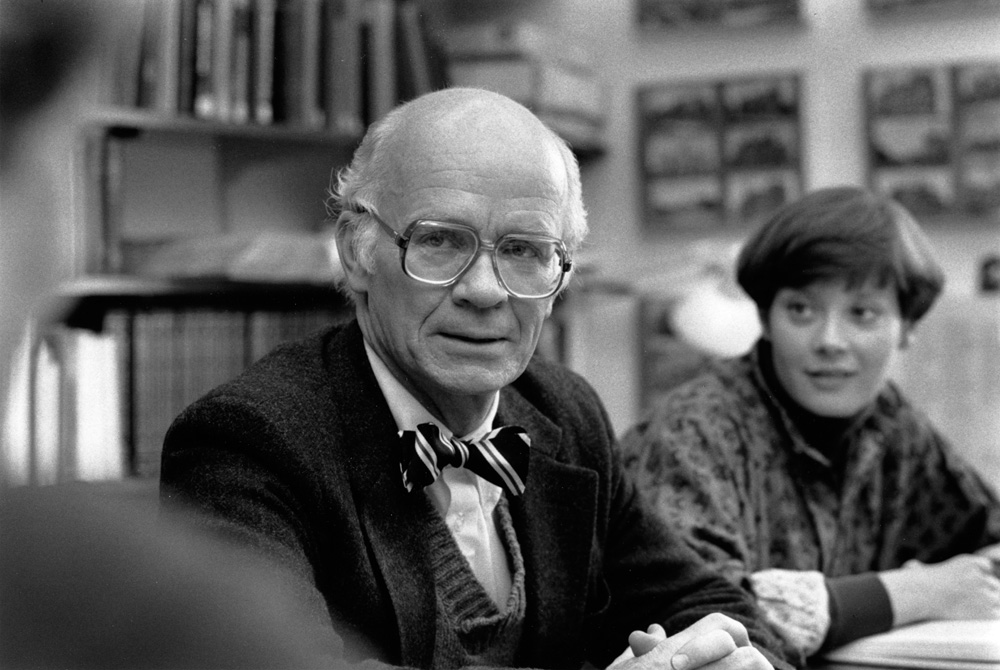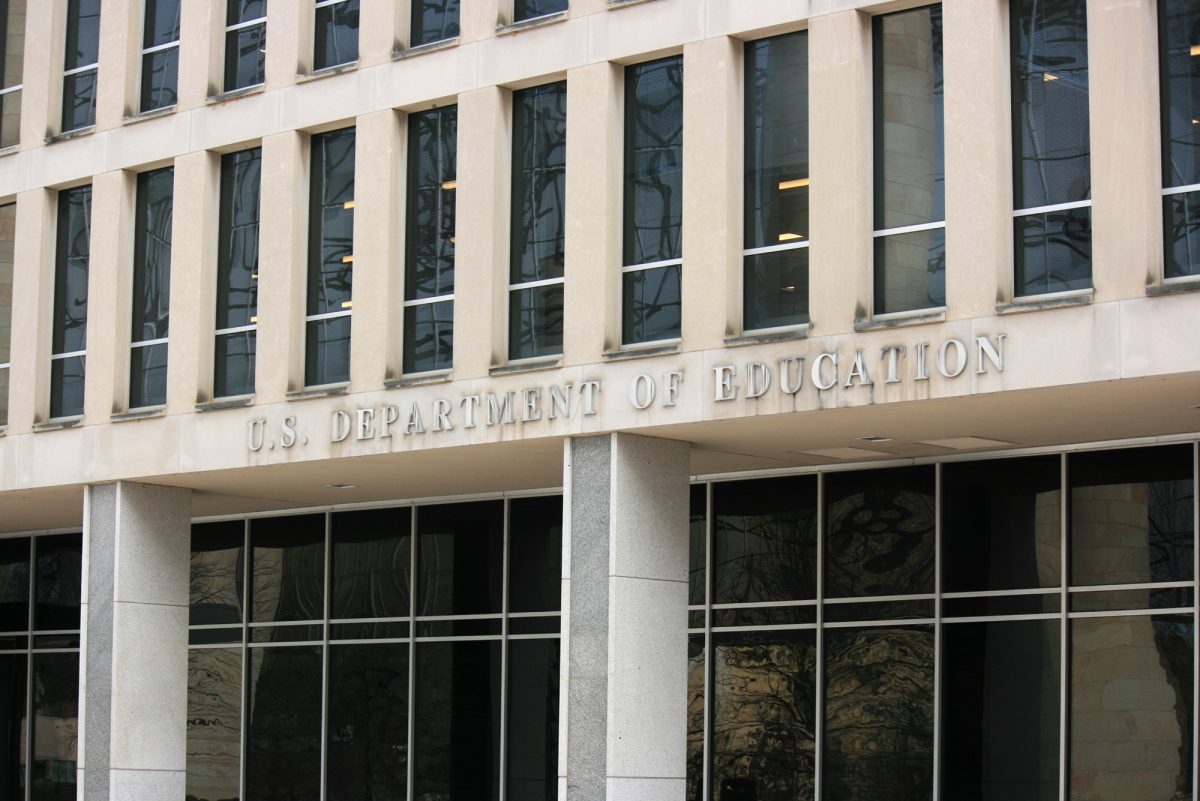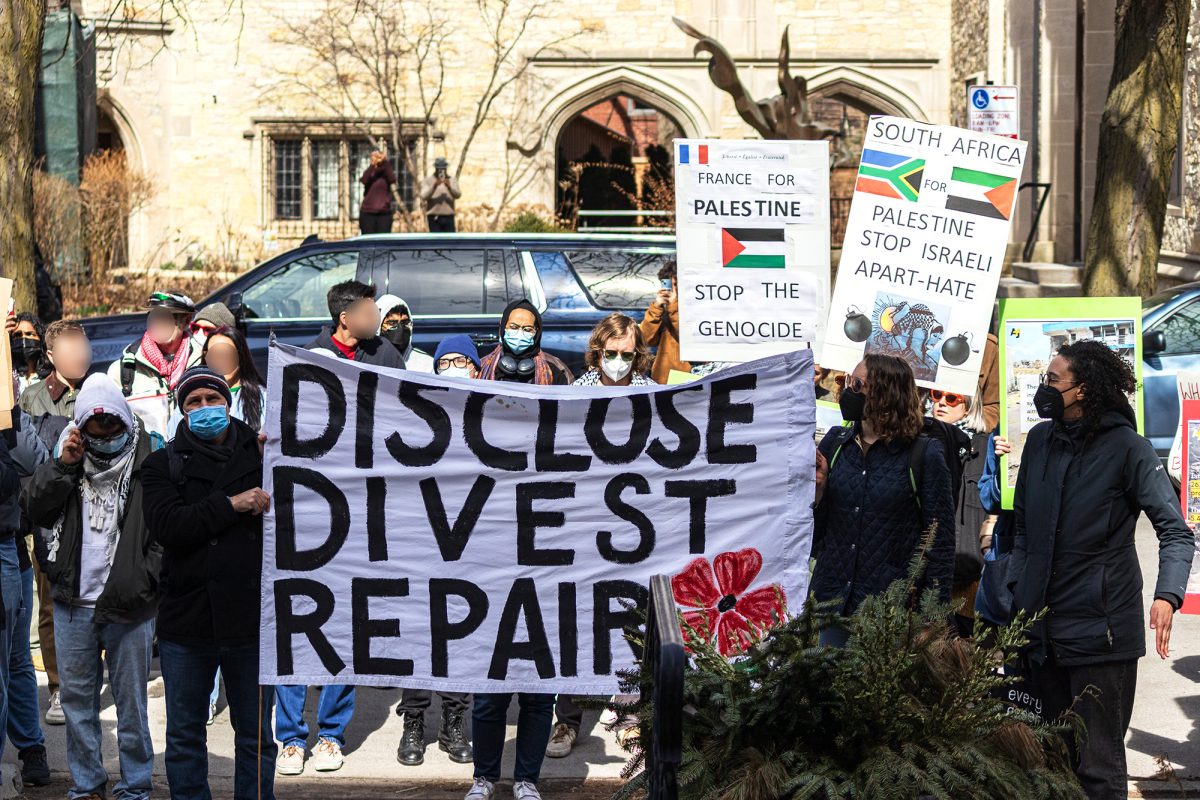National and local experts gathered in Kent Hall on Wednesday, March 7 to discuss the economic, environmental, and cultural impact of the Obama Presidential Center plans on South Side neighborhoods as part of a symposium co-hosted by several organizations.
The symposium was organized by W. J. T. Mitchell, professor in art history, English, and visual arts and editor of the scholarly journal Critical Inquiry. Mitchell created the event as a follow-up to a January faculty letter he co-authored, which expressed concerns regarding the plans for the Center.
The symposium was supported by the Mansueto Institute for Urban Innovation, the Chicago Center for Contemporary Theory, the Mellon Sawyer Seminar on Urban Art and Urban Form, Critical Inquiry, and students in Mitchell’s Ph.D. seminar Space, Place, and Landscape.
The panel featured Naomi Davis, an activist, urban theorist, attorney, and member of the Illinois Clean Jobs Coalition and Obama Library South Side CBA Coalition; Charles Birnbaum, founder of The Cultural Landscape Foundation; and Jawanza Malone, executive director for the Kenwood-Oakland Community Organization (KOCO).
Barbara Ransby, a University of Illinois at Chicago professor in African American studies, gender and women’s studies, and history, moderated the discussion.
Birnbaum opened the evening by discussing the park’s tangible features, citing his work in landscape preservation and urban design. He emphasized the loss that donating public space in Jackson Park to the Obama Foundation, a private organization, constitutes for the South Side as well as the danger it presents for other public parks.
“The University of Chicago, Mayor Emanuel, the Chicago Park Board, the Obama Foundation and others have set a bad and frankly dangerous precedent by taking parkland held in public trust for the Center,” Birnbaum said.
Birnbaum fears the city’s gifting of public parkland could become common practice, thereby threatening the fate of other public parks. “The promise of revitalization and economic benefit need not come at the expense of parkland. It’s not an ‘either-or’ situation. Chicago’s South Side can have both,” he said.
Davis stressed the concept of enterprise and reiterated that the community’s respect for the Obamas is separate from the discussion surrounding the Center. “We love our president and first lady unequivocally,” Davis said. “He is our president forever, no matter how we parse our points.”
Davis urged the community to work collaboratively against decisions being made without South Side residents’ input, and to implement the community’s best ideas, not just those from political actors, institutions, and investors. “Any black neighborhood that needs a lottery ticket to survive is a doomed one,” Davis said.
Malone discussed the advantages of a community benefits agreement (CBA) and why he and other community members feel it is the right approach to ensure economic protections to South Side communities.
A CBA, Malone argued, legally guarantees fair relationships that have not historically existed between political actors, institutions, and the community. Malone recognized that a CBA must be founded on the community’s collaborative input and completed through partnership with the Center’s core developers.
“We have gone to the University of Chicago, we have gone to the city of Chicago, and we’ve gone to the Obama Foundation to negotiate what the final product looks like, understanding that we’ve gone half the way, we want to got all the way together in partnership,” Malone said. “But, that is not what they want.”
Malone explained the reluctance for an agreement on a CBA a sign of deeper tensions within the city. “Chicago has a very special strain of racism that has been cultivated for generations now,” Malone said. “It has placed low-income and working African American families in particular in a virtual caste system that is maintained by the coordinated efforts of elected officials and money interests.”
After the panelists concluded their statements, audience members were allowed to pose questions or comments. No questions were asked of the panelists, but attendees spurred lively discussion about the Center, including its potential effects on taxes, the environment, the future of South Side children, and the cost of living.
Perri Irmer, president and CEO of the DuSable Museum of African American History, voiced her opinion as an event attendee.
She took a firm stance against the symposium’s dominating consensus supporting the necessity of pressuring the Foundation to change its plans to accommodate certain concerns, particularly those regarding the park’s original design intent and topographical changes the Center plans will bring to Jackson Park.
“If we want to talk about what the University of Chicago has done with social engineering through real estate, sure. But to saddle that to a development where our president—who we trusted…to lead our nation and be the leader of the free world not once but twice—[and] you’re saying you’re not going to trust him and Michelle to deliver for their own communities?” Irmer said. “I find that incredible.”
The Chicago Plan Commission is set to review the Center plans this spring. If approved, the Center is on track for completion by 2021.



